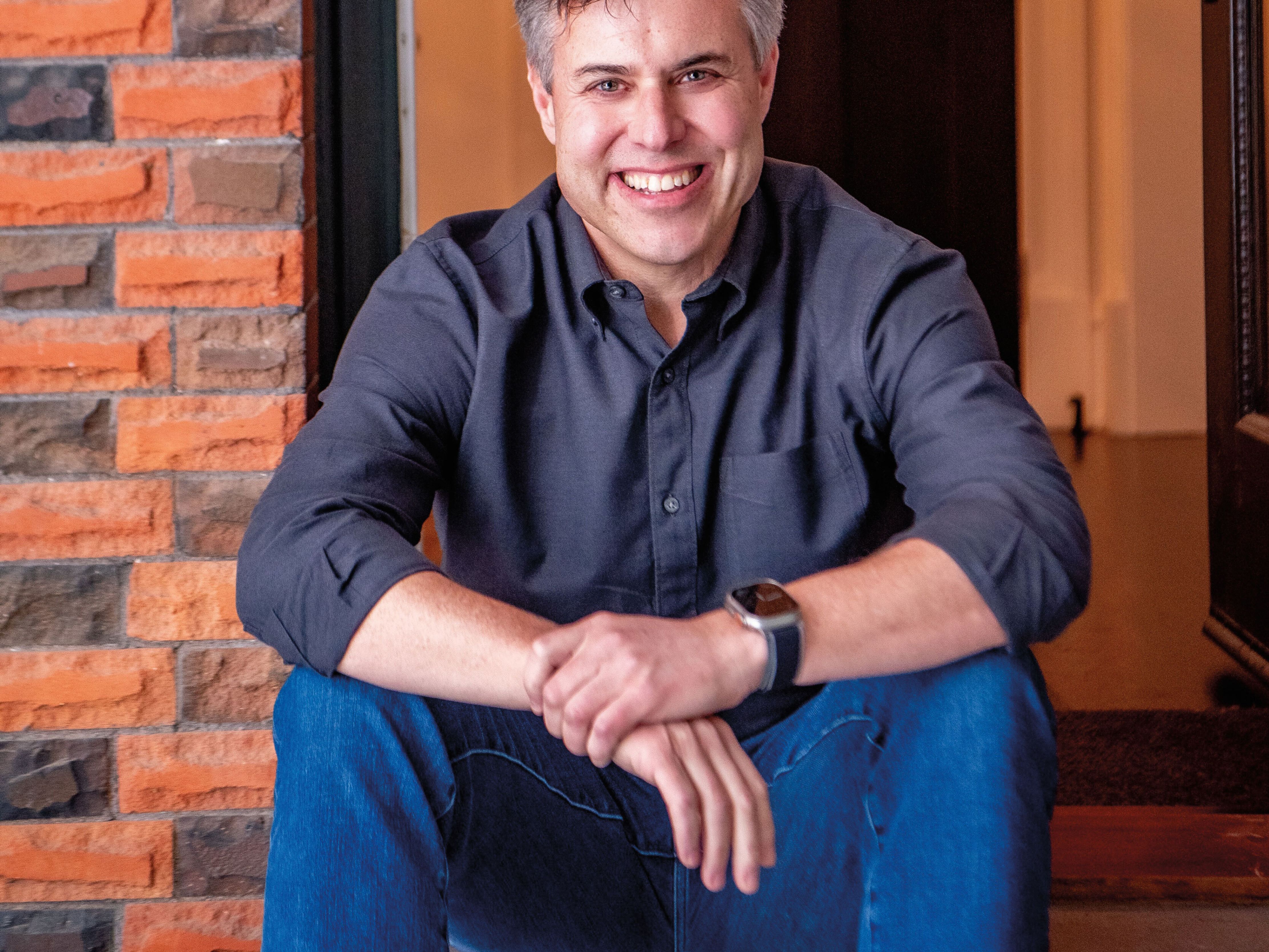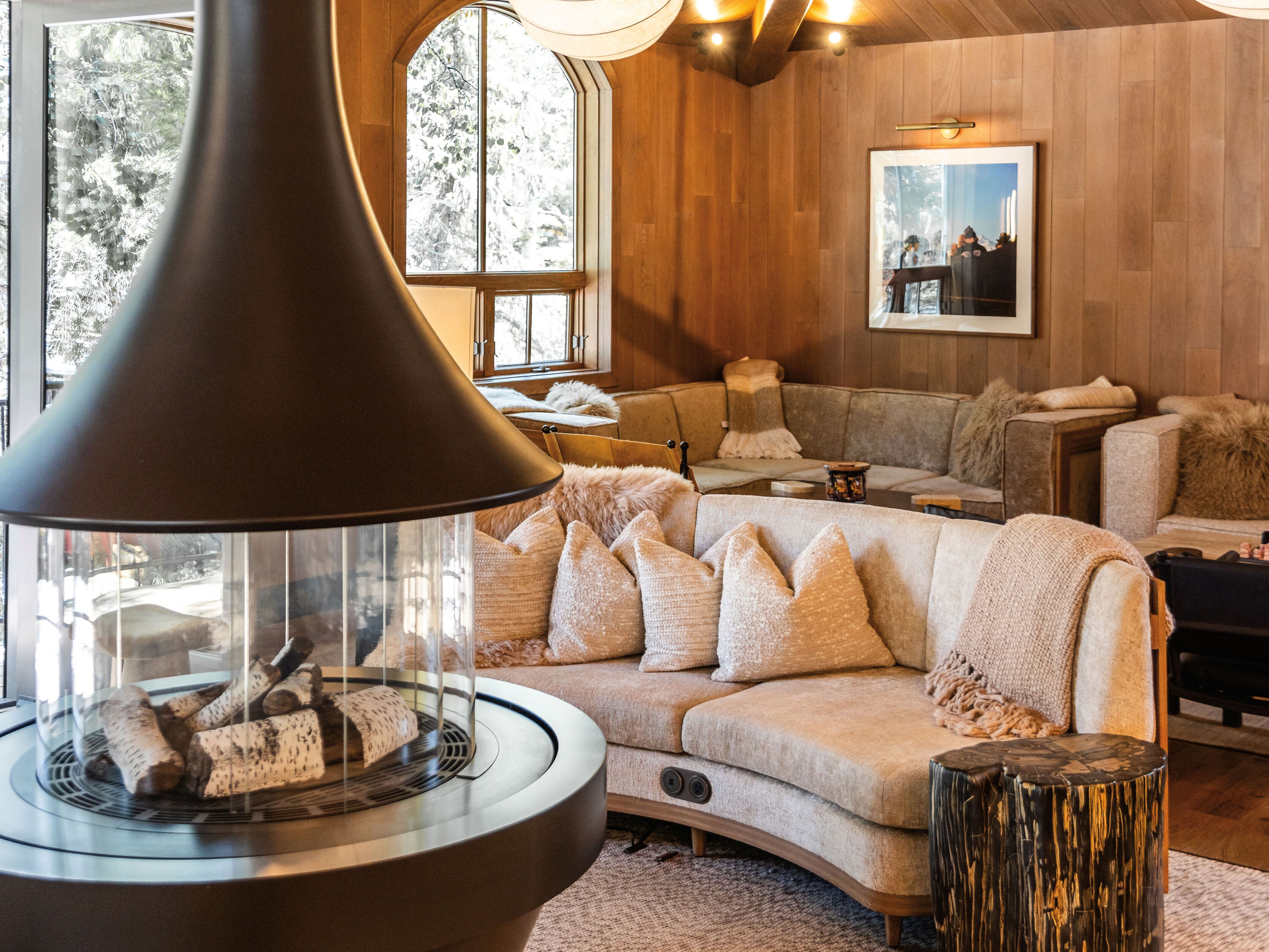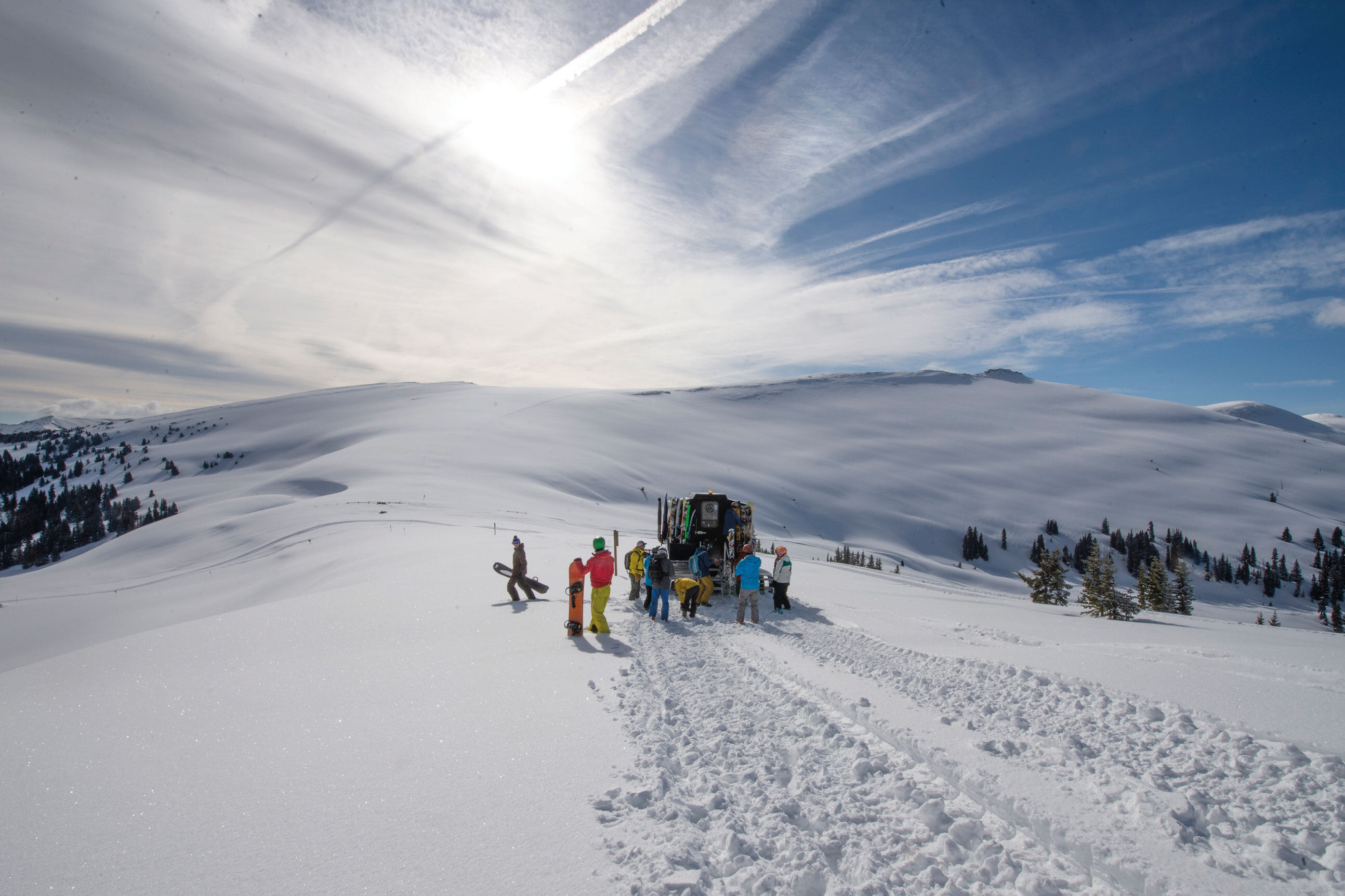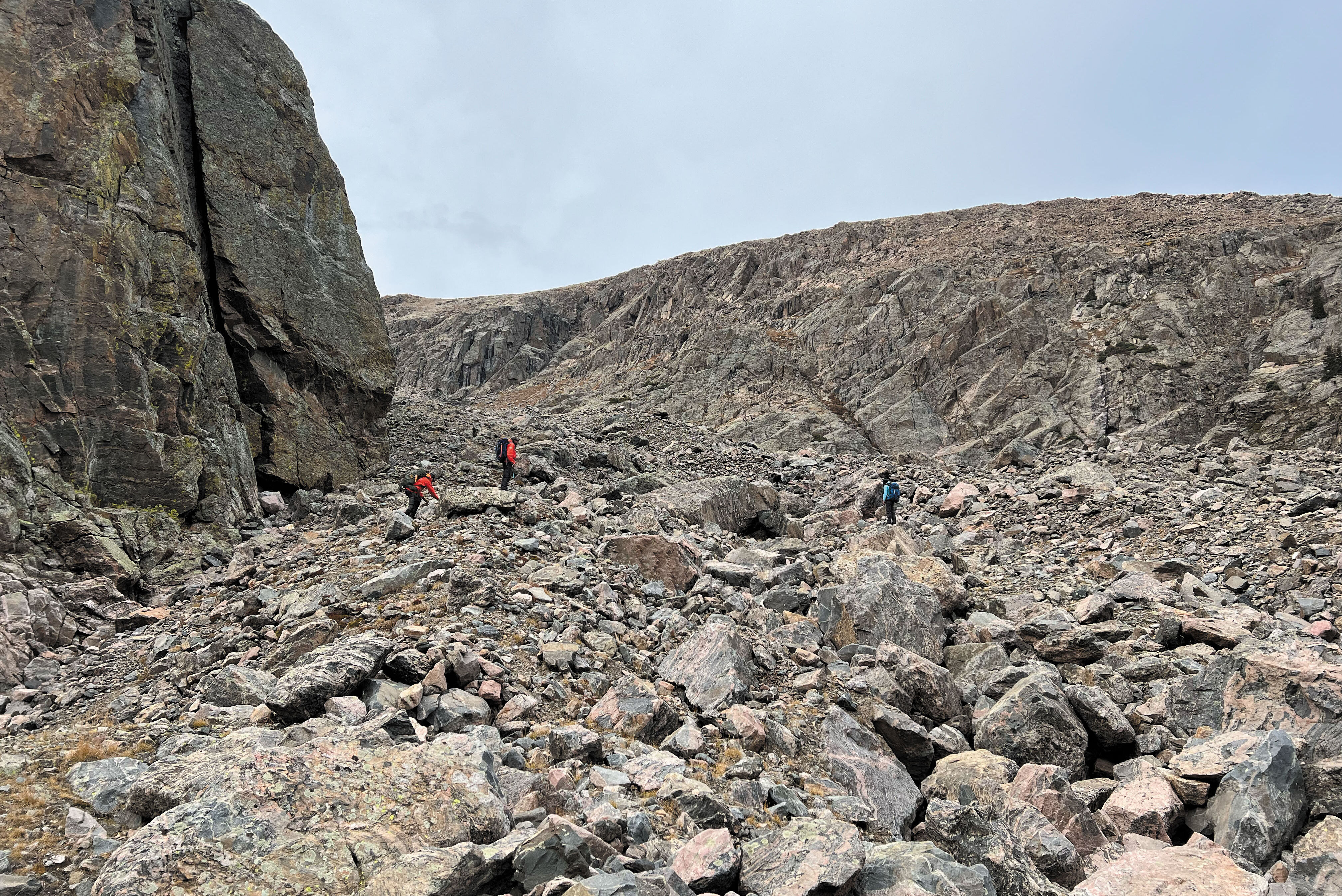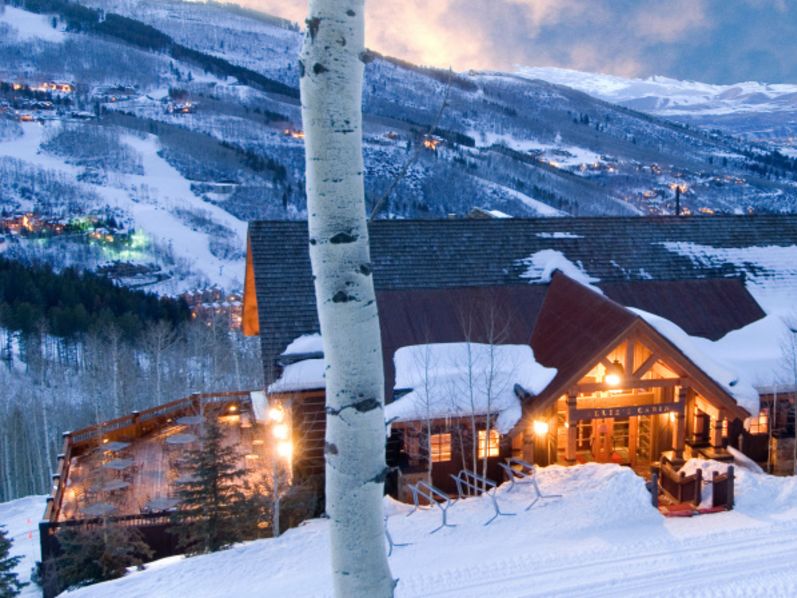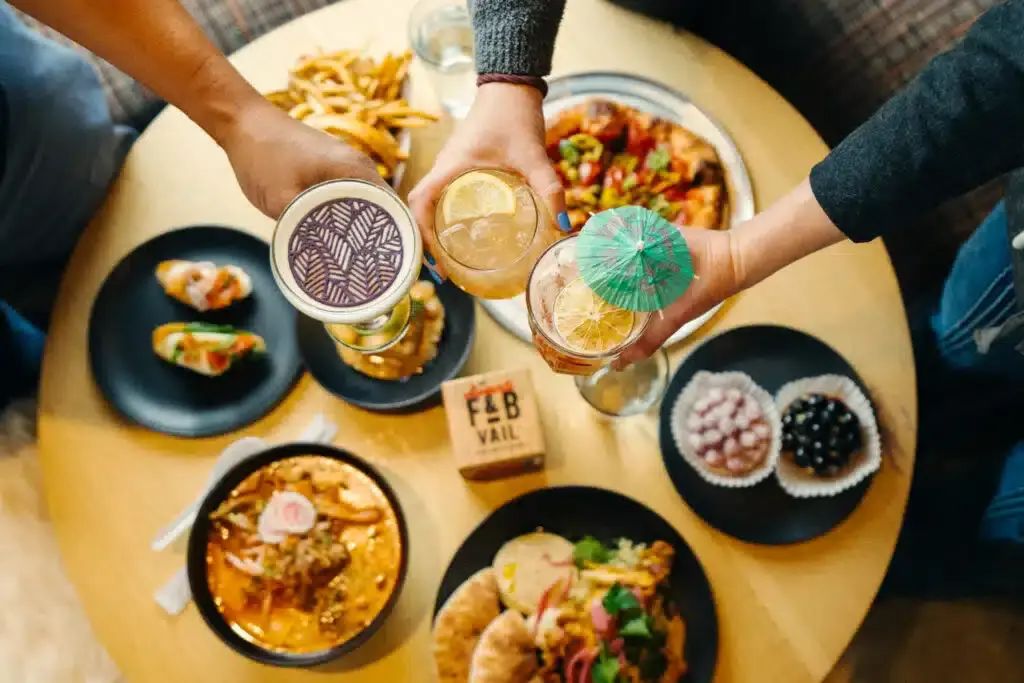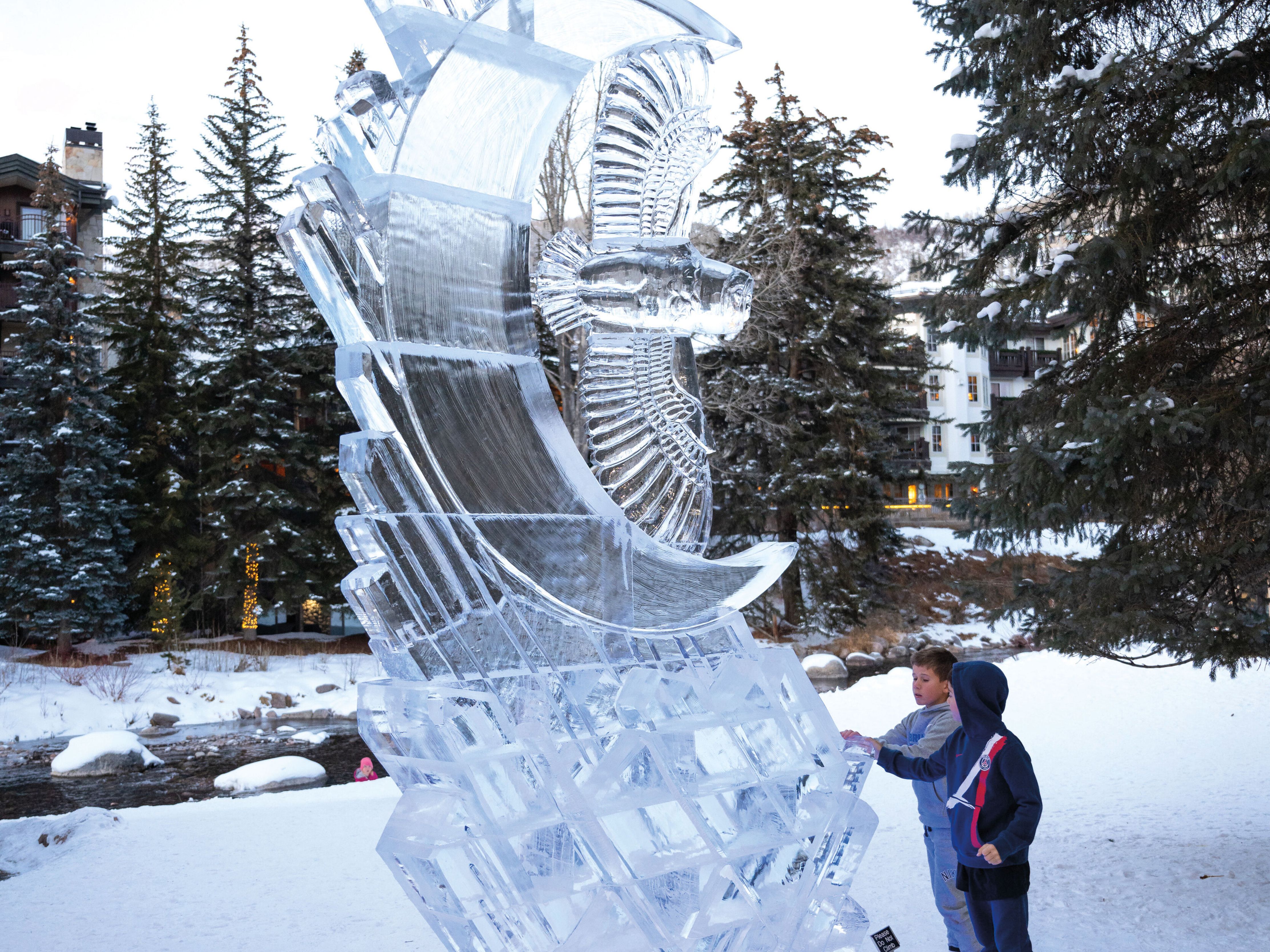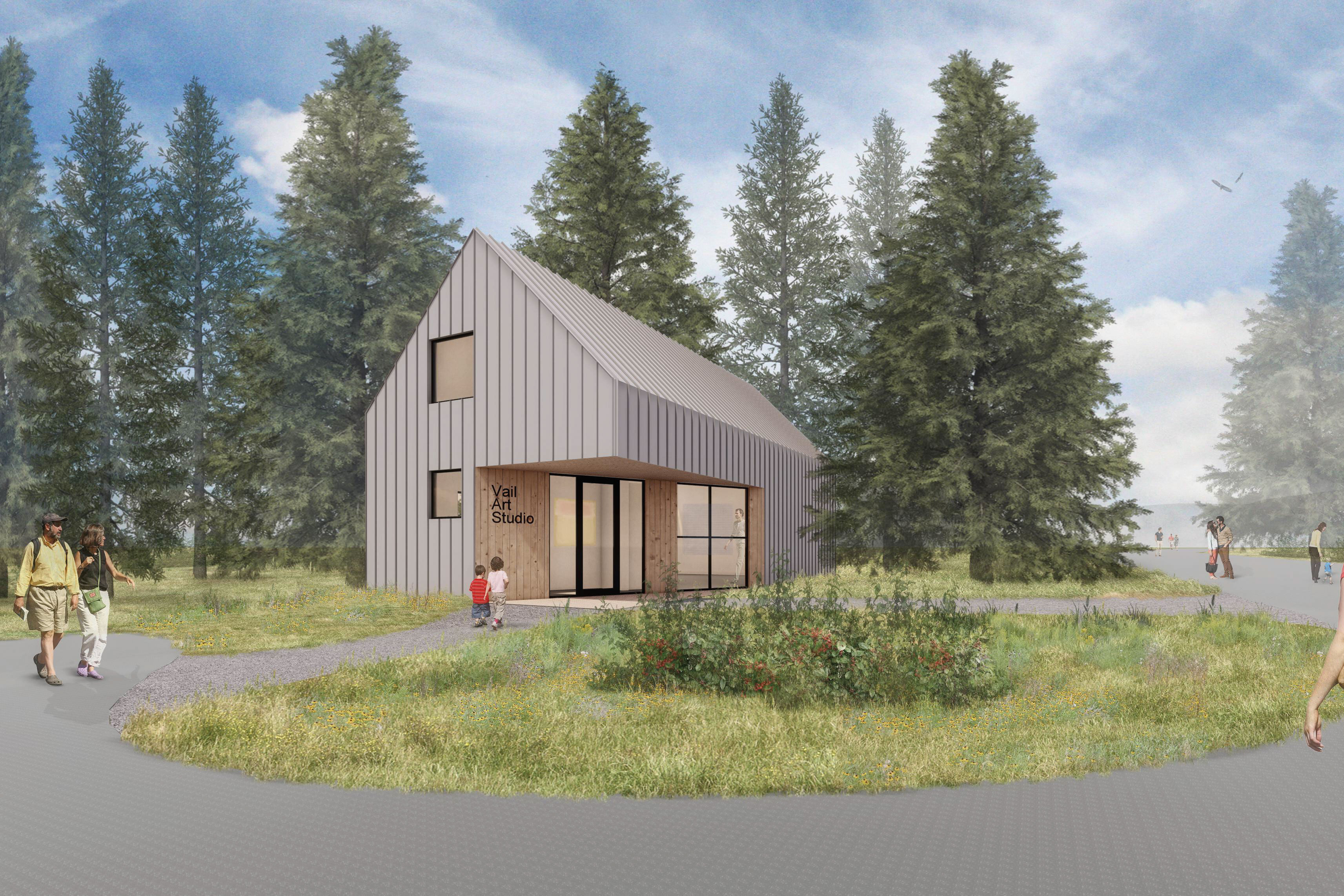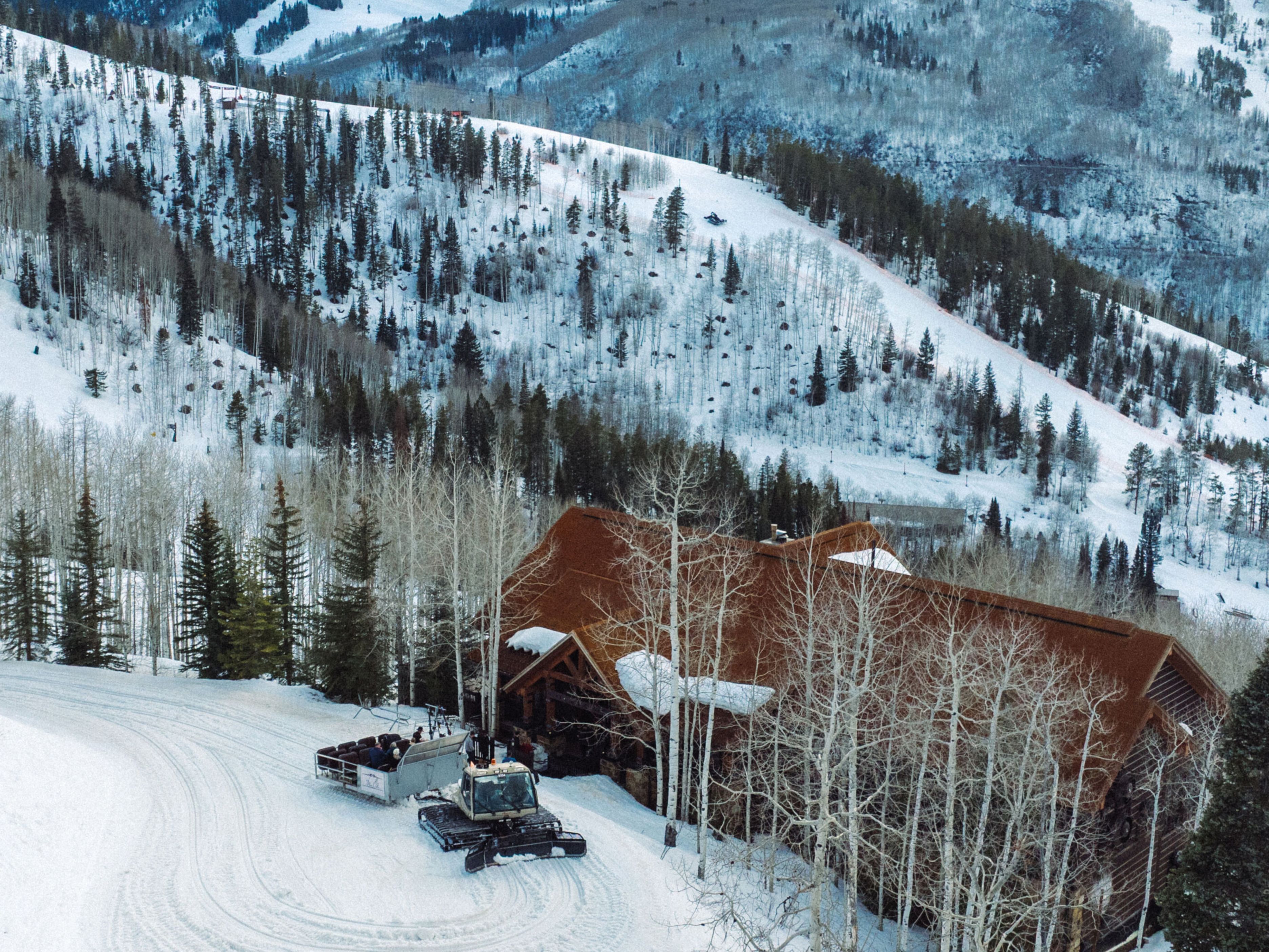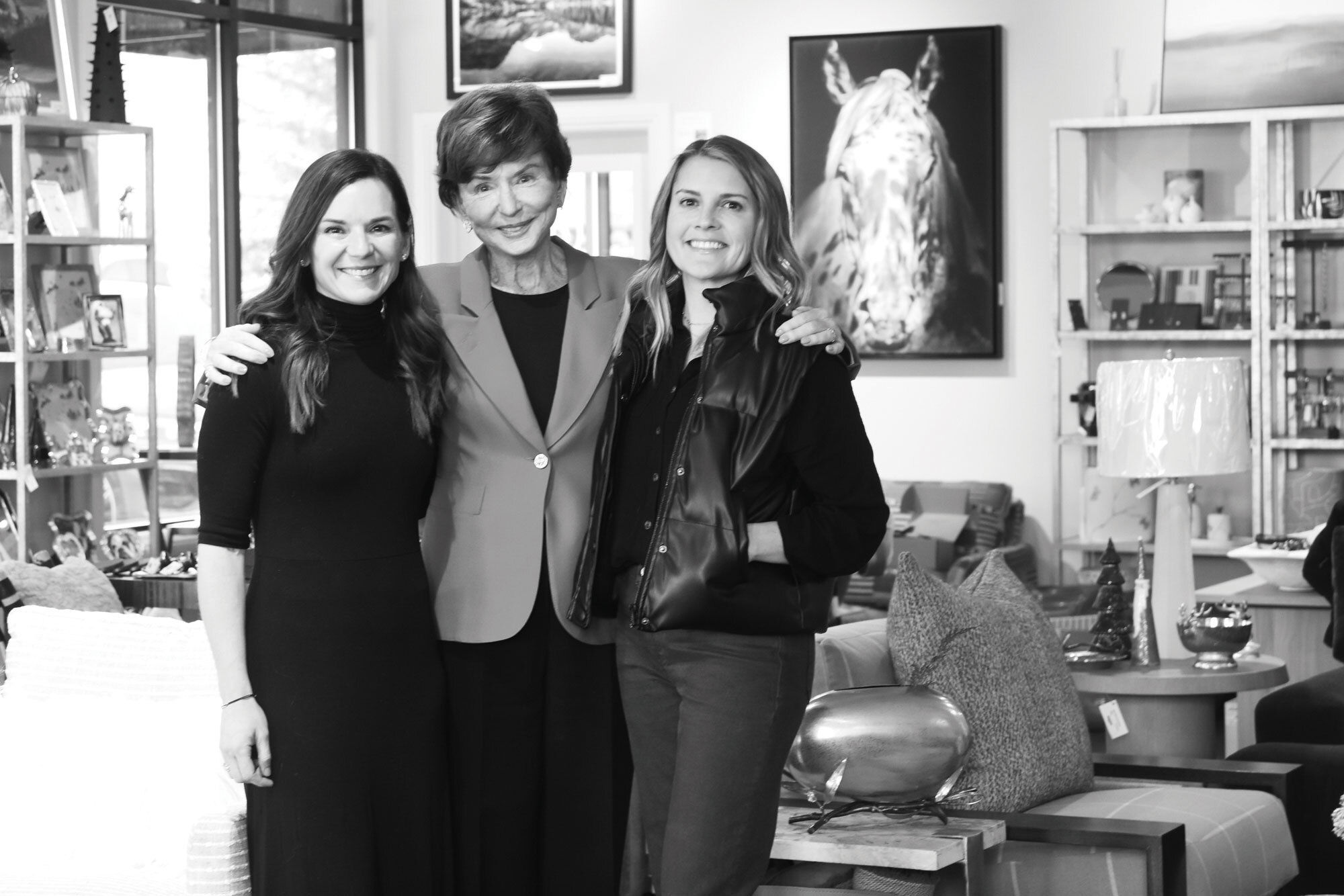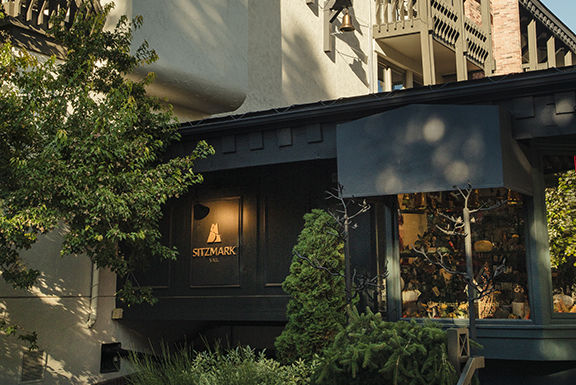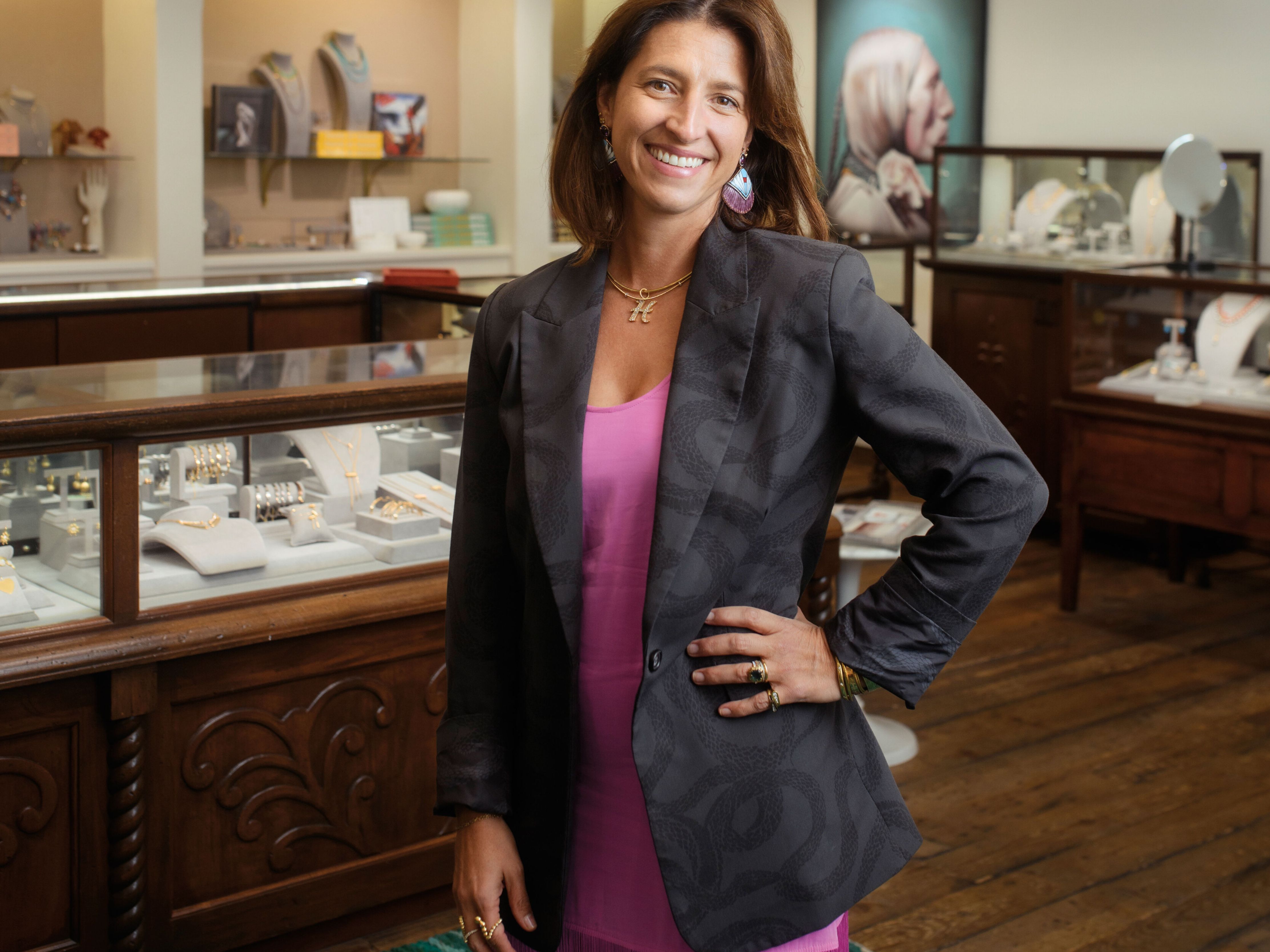The Low-Key Lifestyle and Cooking of One of Vail's Farm-to-Table Innovators
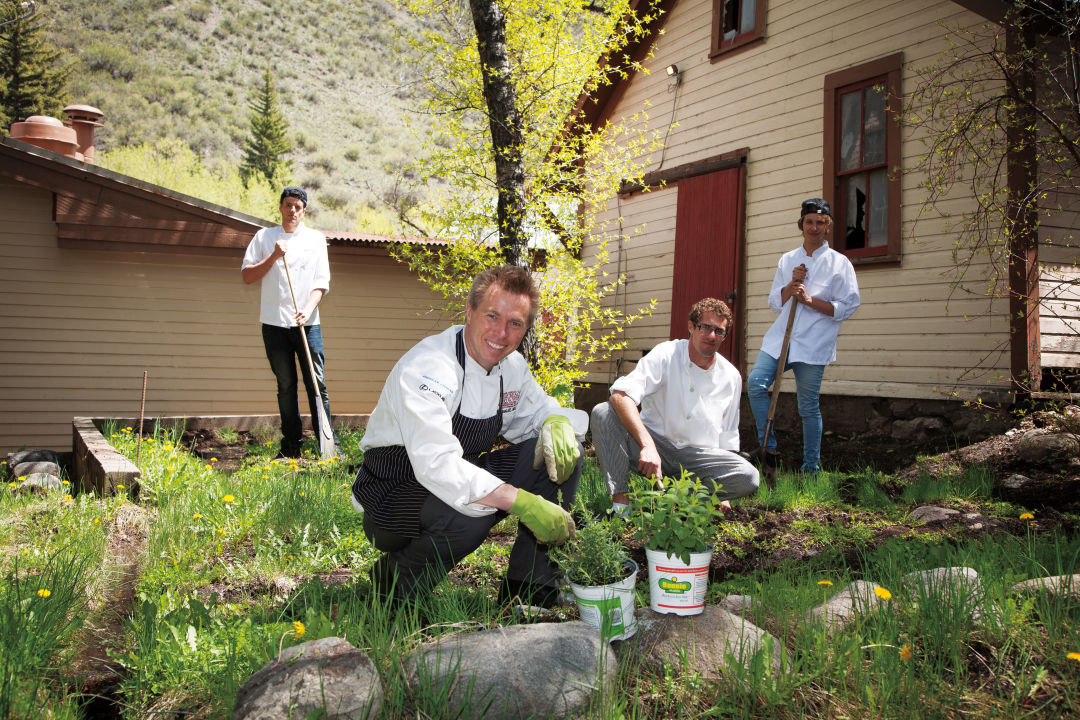
Image: Charles Engerlbert
It’s a radiant late-spring morning outside Mirabelle, and Chef is nowhere to be found. His Escalade is parked near the kitchen’s back door, which is ajar; inside it’s dark, and the burners on the stoves are cold.
“Chef?!” I shout, but no answer. Which is curious, because I have an appointment with Daniel Joly. We’re supposed to drive out to his farm in McCoy, where, alongside a tree house, a zip line, and a shooting range, Chef drives a tractor and keeps acreage planted with vegetables. I try the front door of the restaurant—a century-old farmhouse that once served as the homestead of Nottingham Ranch—but it’s locked. Then I hear shouting, in French, so I follow the sound out back, where Chef and a sidekick, Gregory, a lanky young line cook in a black Misfits T-shirt, have just rerouted water from a babbling brook into a network of trenches irrigating a plot of freshly tilled earth: the restaurant’s herb garden.
“Ah like deegging in the dairt,” explains Joly, a handsome 46-year-old Belgian master chef in designer blue jeans and powder blue muscle shirt, a ringer for Val Kilmer’s blond, blue-eyed Iceman in Top Gun who speaks with an accent as thick as béchamel. “Here, we will have chives, sage, thyme, rosemary, oregano, maybe some radish, a couple of zucchini perhaps, but my focus is on the fresh herbs. There’s really no substitute. The flavor, it comes from the herbs.”
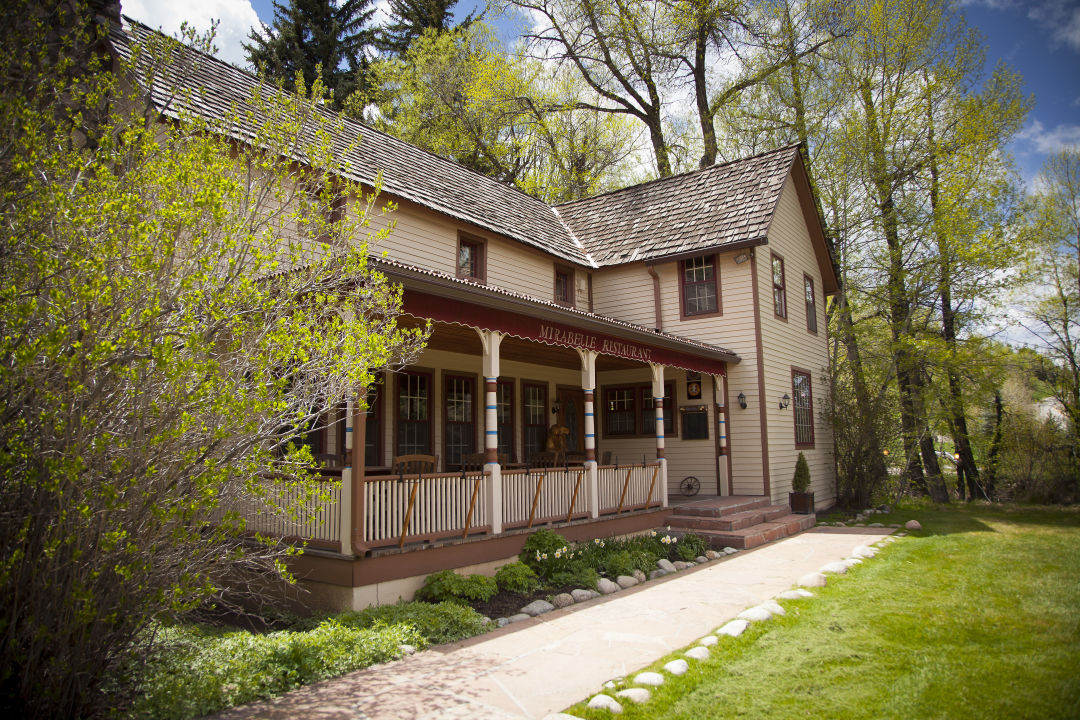
Image: Charles Engerlbert
We pile into a gleaming 1960s Baltic blue Mustang convertible, wind around Avon’s roundabouts, and head west on the interstate, the Belgian Iceman’s coiffure defying a seventy-five-mph headwind. Our destination has changed; we’re headed not to Joly’s hobby farm in McCoy, but to Eagle Springs Organic, a new 1,500-acre commercial farm in Silt with a futuristic computer-controlled greenhouse that’s lately been supplying Mirabelle’s micro greens. Ostensibly, we’re fetching a flat of starts for the restaurant’s herb garden, but really Chef wants to inspect the facility and connect with its owner.
“If I can meet the farmer and know what his belief is, it is more important than having the organic paperwork,” he explains. “It’s about respecting the growing season. As a chef, if you start with an ingredient that is amazing, you can make something that is unbelievable.”
As the miles tick by, Chef narrates his backstory, how he vowed as a 15-year-old that one day he would own a restaurant, graduated from the Culinary Institute of Brussels, cooked in Michelin-starred restaurants in Belgium (where he was named the nation’s best chef at age 20), and landed at Beaver Creek’s Mirabelle in 1992, which he purchased from founder Luc Meyer seven years later. He and his wife, Nathalie, live upstairs with their two sons, and six mornings a week he rolls out of bed and heads downstairs to the kitchen, or out to the garden.
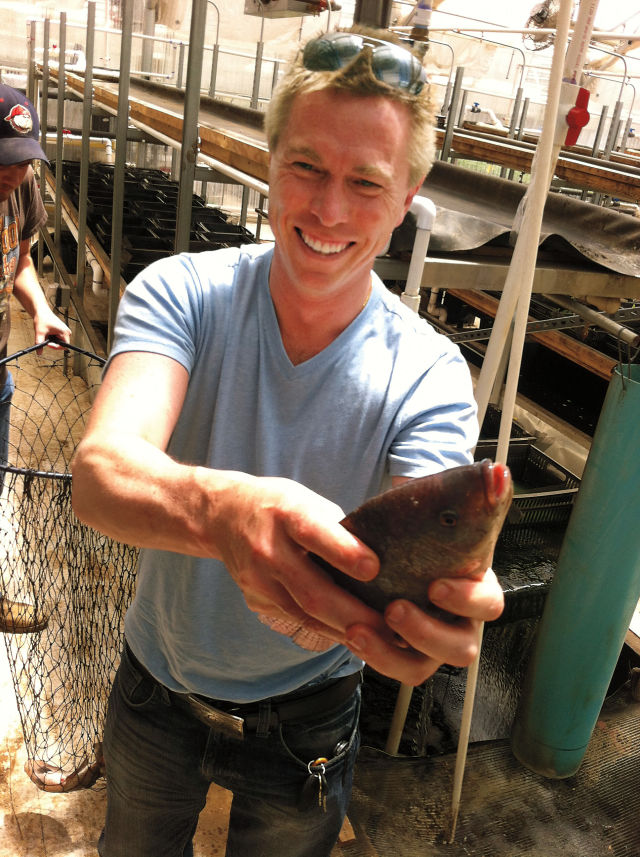
Living and cooking at Mirabelle may seem idyllic, but it’s not precisely as Joly envisioned 31 years ago: in particular, the short growing season in the Vail Valley makes doing farm-to-table European-style cooking something of a challenge. In Brussels, he could walk to the market every morning and buy fish just netted from the North Sea, meat butchered on-site, produce with dirt still wet from the ground. Here, he drives to Silt, where a two-acre complex of greenhouses powered by a 1.5-megawatt solar array rises out of the dusty scrub like an apparition.
The “farmer” meets us outside: Ken Sack, Eagle Springs’ CEO, an gregarious entrepreneur from Aspen who invites us on an hour-long tour. Inside the greenhouse, Chef’s eyes go wide as he surveys the scene and inhales the peat-perfumed humidified air.
“It is exciting,” he says. “I’m like a kid in Disneyland!”
We wander through fields of romaine and chard then a forest of heirloom and roma tomatoes trellised from floor to glass ceiling, chef nibbling as he goes. In a tropical hothouse, home to banana trees, tubs of lemongrass, and a grove of citrus, there’s even a fish farm. Soon we’re rattling down a rutted road past herds of scruffy-haired Scottish highland cattle and freshly minted poultry barns to inspect a piggery, where a 650-pound Berkshire Duroc sow has just given birth to a half-dozen suckling piglets, ending our tour at an abattoir still under construction. Joly, clearly, has been humbled.
“I’m a Sunday-morning farmer; I am a city boy,” he confesses to Sack, struggling to find the appropriate words. “But this . . . ”
For a farm-to-table European master chef, this is paradise.

